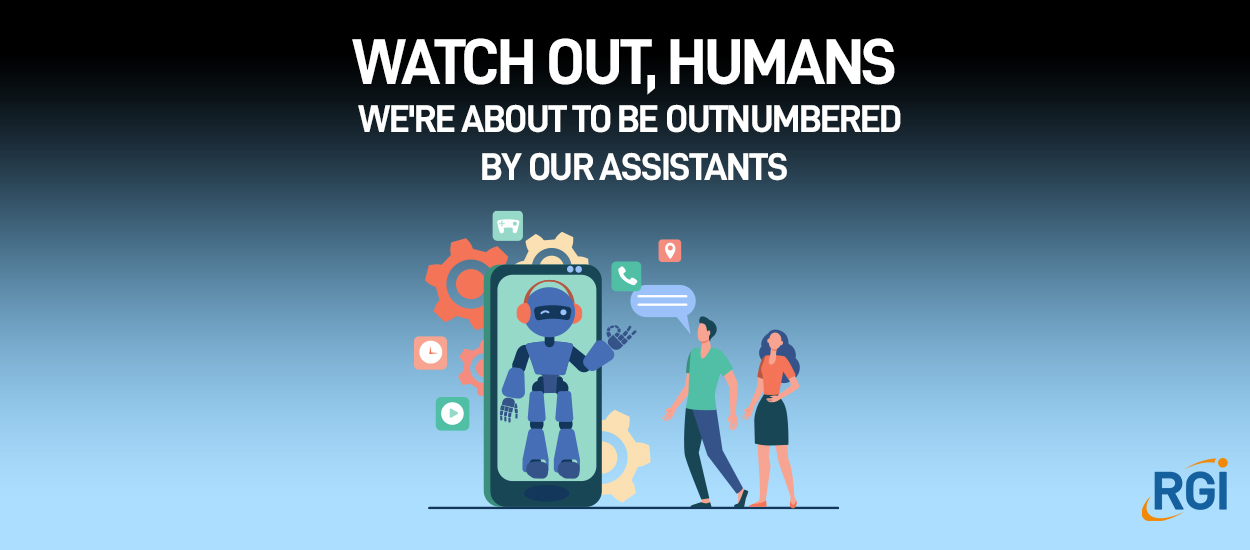Since the number of these devices is expected to rise over the next four years, insurance companies might take some advantages as well, starting from creating a new ongoing interactive, empathetic relationship with customers
Watch out, humans – we’re about to be outnumbered by our assistants.
Yes, you read that right: a recent report by Juniper Research predicts that over the next four years, the number of virtual assistants on the planet is set to exceed that of the number of actual people.
Very interesting, you’re probably saying – but what’s that got to do with insurance? And what is a virtual assistant anyway?
Virtual assistants (also known as IPAs or Intelligent Personal Assistants) are the increasingly ubiquitous pieces of software installed in smartphones, cars and TVs which are capable of responding to spoken instructions and carrying out tasks like controlling home automation and media devices and managing email and calendars.
Often used in unison with a Smart Speaker – the voice-activated devices which are their mouthpieces in many homes –, virtual assistants can make the experience of, say, checking the weather forecast, asking for directions, learning a recipe or finding out whether a restaurant is open a far more engaging experience than just staring at a computer screen. One survey found that in over 80% of households which owned one of the bestselling virtual assistants, it was used by two or more family members. So one thing is clear – more and more people prefer talking to typing.
Virtual assistants have also driven the growth of a new type of commerce: purchasing products via spoken interaction with a virtual assistant. Although voice shopping struggled initially to get a foothold, continued improvements in machine learning mean that it’s forecast to become significantly more popular over the next few years.
So what opportunities do virtual assistants offer the insurance business? Well, one clue might be developments we’re seeing in the medical field, where AI-powered virtual doctor chatbots have proven themselves able to provide satisfactory medical advice to 90% of inquiries, meaning that only one in ten of users actually ends up needing to see a flesh-and-blood doctor. This means that patients get rapid assistance while doctors are freed up to dedicate their time to more serious cases.
There’s no reason why a similar approach couldn’t be adopted in the insurance sector. Virtual assistant AI insurance agents with a comprehensive knowledge base and trained to interact in a compassionate, empathetic way could provide a vital, proactive way of engaging clients and fostering dialogue between insurer and customer in the time between purchasing an insurance policy and making a claim: an ongoing interactive relationship where the virtual assistant is always on hand to provide insurance advice and suggestions for whatever situation the client happens to find themselves in.
It’s also important to bear in mind that research shows how important the sensation of belonging to a community is for the new generation of Millennial clients, who react positively to anything that kindles a sense of belonging and like fuss-free transactions: this is another area where virtual assistant AI insurance agents could be vital in providing a gratifying and useful personal connection. With the number of virtual assistants and smart speakers constantly on the increase, it’s obvious that the insurance sector would be wise to rapidly start investing in this promising new way of engaging with customers. Like it or not, these talking machines are destined to play an important role in all of our futures, and it’s only by getting to grips with them as soon as possible that the insurance industry can ensure its continued relevance.










